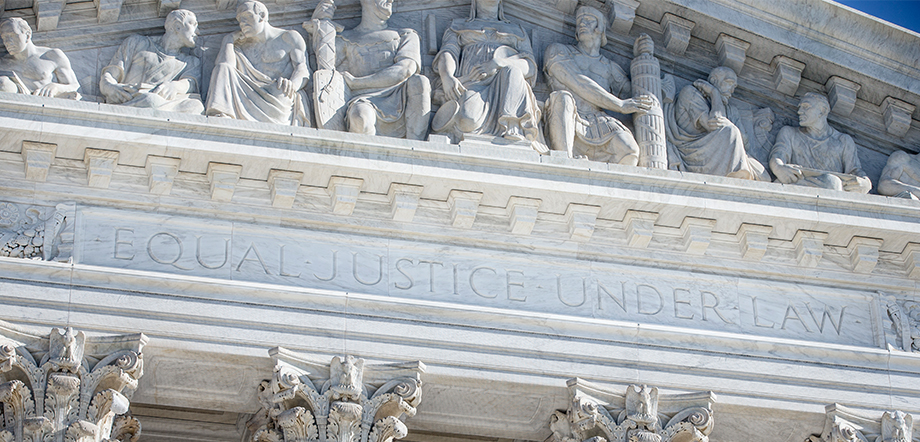Client Alerts
U.S. Supreme Court Issues Monumental PAGA Decision for California Employers: Viking River Cruises, Inc. v. Moriana
June 2022

Client Alerts
U.S. Supreme Court Issues Monumental PAGA Decision for California Employers: Viking River Cruises, Inc. v. Moriana
June 2022
On June 15, 2022, the United States Supreme Court issued its decision in Viking River Cruises, Inc. v. Moriana, ruling that agreements mandating arbitration of employees’ individual PAGA claims are enforceable. In doing so, the Court ruled that the Federal Arbitration Act (FAA) preempts California’s prohibition on the employer’s ability to contract with employees to bring only their individual claims in arbitration and not a representative Private Attorneys General Act (PAGA) claim. Furthermore, the Court noted that employees lack statutory standing to maintain their non-individual (representative) claims in civil courts once the individual claims are compelled to arbitration. This is a huge win for California employers in their ability to limit their exposure to PAGA representative claims through the use of arbitration agreements.
California’s PAGA was designed by the California Legislature to offer financial incentives to private individuals to enforce state labor laws by recovering certain civil penalties. Aggrieved employees can seek recovery of civil penalties for Labor Code violations they suffered, in addition to penalties for all Labor Code violations by the employer in a representative action, as long as the employee suffered at least one violation. Of the collected penalties, 75% must be distributed to the Labor and Workforce Development Agency with the remaining 25% distributed among the employees affected by the violations, and a prevailing plaintiff is entitled to their fees and costs. PAGA claims are representative actions, which are distinct from class actions in a number of ways. A PAGA claim can be brought by one employee while seeking penalties for all employees.
At issue in Viking was plaintiff Angie Moriana’s filing of a PAGA action in California against her former employer, Viking River Cruises, alleging that it failed to provide her with her final wages as required by the California Labor Code. The PAGA action also included the proverbial kitchen sink of other Labor Code violations allegedly sustained by other Viking employees. Viking moved to compel arbitration of Moriana’s individual PAGA claim and to dismiss her other, non-individual PAGA claims. Viking based its motion on an arbitration agreement Moriana signed agreeing to arbitrate all disputes arising out of her employment. This agreement contained a Class Action Waiver providing that the parties could not bring any dispute as a class, collective, or representative PAGA action in the arbitral proceeding. The agreement also contained a severability clause specifying that if part of the waiver was found to be invalid, any valid portions would be enforced in arbitration. The trial court denied Viking’s motion, and the California Court of Appeal affirmed, ruling that pursuant to Iskanian v. CLS Transportation Los Angeles, LLC, (1) categorical waivers of PAGA standing are contrary to state policy, and (2) PAGA claims cannot be split into arbitrable individual claims and nonarbitrable representative (non-individual) claims.
The Supreme Court reversed, and noted that the FAA grants parties the freedom to determine which issues they will agree to arbitrate. By requiring parties to arbitrate representative claims in order to arbitrate individual claims, PAGA violates this right and is therefore preempted. Accordingly, Viking was entitled to compel arbitration of Moriana’s individual PAGA claim. With her individual claim in arbitration, Moriana – under PAGA’s own terms – could no longer litigate the representative claims in court.
The Supreme Court decision in Viking provides employers relief from PAGA if the employer implements compliant arbitration agreements that preclude employees’ ability to file PAGA claims. Justice Alito authored the 8-1 opinion of the Court. Justice Thomas filed the lone dissenting opinion. However, Justice Sotomayor filed a concurring opinion that provides a blueprint for the California Legislature to fashion a mechanism for representative claims to survive in a judicial setting even when individual claims are relegated to a separate proceeding. Therefore, while the Supreme Court’s decision is a positive development for employers wanting to avoid representative PAGA claims through arbitration agreements, the effects of the decision may be subject to continued judicial or legislative development.
ADDITIONAL INFORMATION
For more information, please contact:
- Ndubisi (Bisi) A. Ezeolu | 213.430.3239 | ndubisi.ezeolu@tuckerellis.com
- Lisa I. Carteen | 213.430.3624 | lisa.carteen@tuckerellis.com
- Edward W. Racek | 213.430.3405 | edward.racek@tuckerellis.com
- Anna-Sophie Tirre | 213.430.3122 | anna-sophie.tirre@tuckerellis.com
This Client Alert has been prepared by Tucker Ellis LLP for the use of our clients. Although prepared by professionals, it should not be used as a substitute for legal counseling in specific situations. Readers should not act upon the information contained herein without professional guidance.
